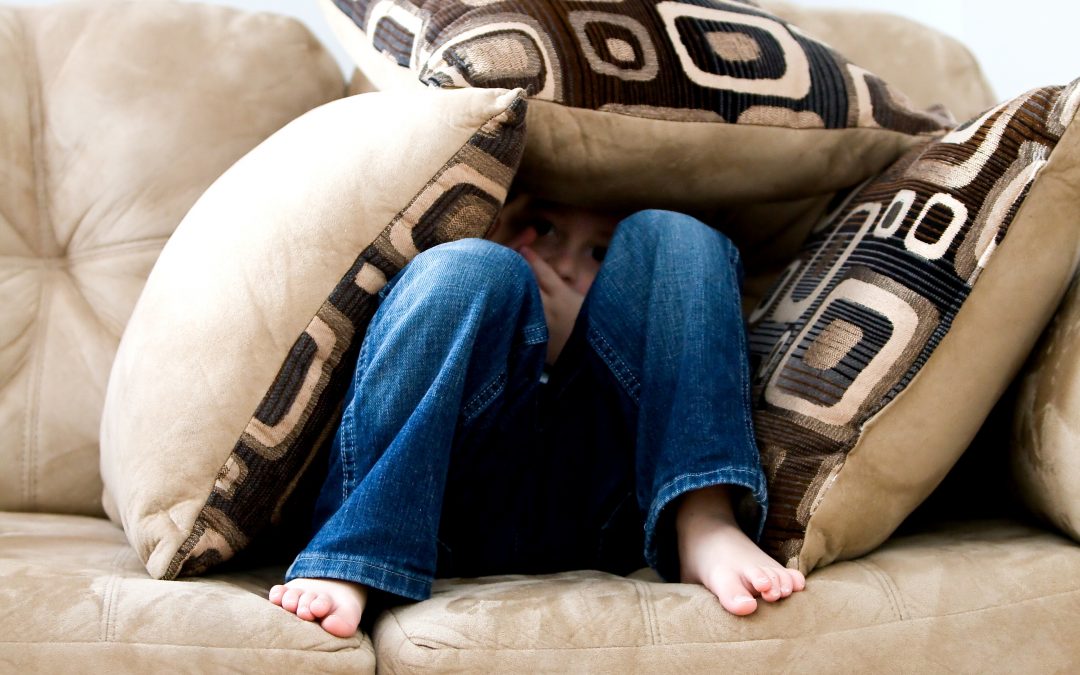Is Anxiety Normal?
Anxiety is an expected, normal and transient response to a stressful situation. It is an evolutionary hangover and one that has allowed us to be in the world today. But with today’s fast-paced lifestyle, social media and our inability to relax, there are more ‘perceived threats’ than ever before. So how can you help a child with anxiety?
Is Anxiety More Common These Days?
We are all aware that anxiety is much more common today than it ever has been in the past.
It is particularly hard to watch our children grow up fearful. To watch the adrenaline start pumping every time they turn on the computer, for fear that they will be cyberbullied; or every time they get a math test back and it isn’t 100% perfect; or every time they look at a magazine picture and feel that they should look the same as the model. We are all aware that in today’s world there are things contributing to anxiety that never were around before.
How to Help An Anxious Child
But what can we do, as parents, to support our children and help them grow into the competent, independent and confident adults we wish them to be?
One of the biggest difficulties I see in parents is the inability to step back and provide their children with opportunities to learn from anxiety-provoking situations. As parents, we are the biggest advocate for our children and we are the voice for them when they find it hard to articulate their own inner thoughts and feelings. Fair enough we want to yell at the kid who told our child they don’t want to be her friend anymore; fair enough we want to remove the computer when we see our child break down in tears and fair enough we want to ask the teacher to give our child an A in maths simply because we know how much effort they put in.
But what if we are stepping in and protecting our children too much?
What if, our behaviour is actually feeding their worries and reinforcing their concerns?
What if the level of emotional support we are offering is fuelling their anxiety and actually keeping it alive?
We all want our children to grow up with a sense of independence and competence.
By protecting them too much, we are sheltering them from the world and not providing them with the opportunity to learn coping skills and develop strategies to help them deal with their anxiety the next time it appears.
We have to help our child understand that the thoughts and feelings associated with anxiety are actually not as threatening as perceived to be. We can’t shelter and protect our children from this emotion, because it is the human condition and the way of the world. We are all anxious at some point in our lives. Children have to grow up with a sense of acceptance, a sense of understanding and a knowing that they themselves can handle this threat; that they, themselves, can cope with this level of distress; and that they themselves, have got this!
Your job, as a parent, is to take a back seat.
Your job is to help guide and support them as they experience the realities of the world.
Your job is to watch them fall and then praise them for getting right back up on their own.
About the Author
Jess Chrystal is an Educational and Developmental Psychologist with extensive experience in the areas of autism, learning difficulties, challenging behaviours, and attention and concentration difficulties. Jess currently works part-time as the Junior School Psychologist at Trinity College, East Perth and at Chrystal Psychology, Osborne Park.
 Jess uses an evidence-based approach to assessment and therapy and is committed to helping children with anxiety discover their hidden talents, developing greater confidence, draw upon their inner strength and discover their full potential.
Jess uses an evidence-based approach to assessment and therapy and is committed to helping children with anxiety discover their hidden talents, developing greater confidence, draw upon their inner strength and discover their full potential.
Jess has been trained by Resilience Kit to deliver group programs for the prevention and reduction of anxiety.
View the dates of upcoming programs here.

